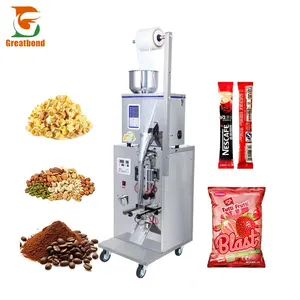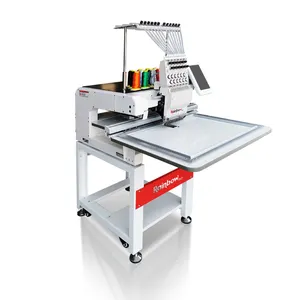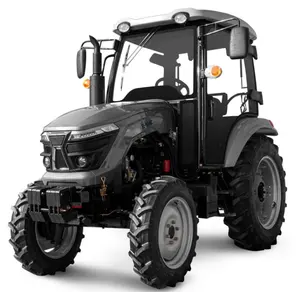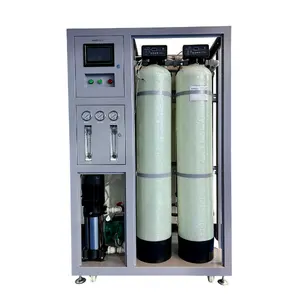Popular in your industry























































































































































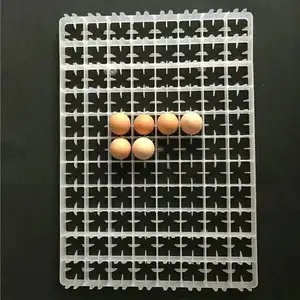


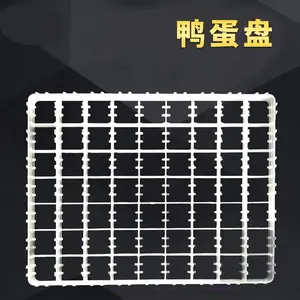










































Top categories
About 50 eggs incubator
Embarking on a hatchery venture requires not just expertise in avian care but also the right equipment to ensure the health and viability of your future flock. In the heart of this operation lies the egg incubator, a pivotal tool for breeders aiming to maximize hatch rates and streamline the incubation process. This article delves into the world of egg incubators, focusing on the top 50-egg models available on the market. We'll explore the intricacies of incubation, the various types of incubators on Alibaba.com, and the features that set them apart. Whether you're a seasoned hatchery owner or a budding poultry enthusiast, understanding the nuances of these machines will be instrumental in the success of your hatching endeavors.
Understanding Egg Incubators

Embarking on the journey of hatching chicks using an egg incubator can be both exciting and intimidating. The process allows for careful selection of eggs, offering advantages over traditional methods. An incubator facilitates close monitoring and control over the hatching environment, which can be crucial for successful chick development.
Setting up an incubator requires attention to detail and adherence to specific conditions. The temperature is maintained at 99.5 degrees Fahrenheit, with humidity levels kept between 40-55% for the initial 18 days of incubation. These conditions are vital for proper embryo development. As the hatching day approaches, the humidity is increased to around 60% to facilitate the hatching process.
The incubation period for chicken eggs is typically 21 days. During this time, eggs need to be turned multiple times daily to prevent the embryo from sticking to the shell, which is crucial for the chick's survival. This can be done manually or with an automatic turner available in most incubators. Proper setup and regulation of the incubator's environment prior to adding eggs are essential for maintaining stability throughout the incubation period.
The final stages of incubation require careful handling, with the automatic turner being removed on day 18 to allow the eggs to rest on the incubator's floor. This stage is known as 'lockdown,' and it's a critical phase leading up to the hatching of the chicks. With patience and precise control of the incubation environment, the hatching process can be a rewarding experience.
Types of Egg Incubators Available on Alibaba.com
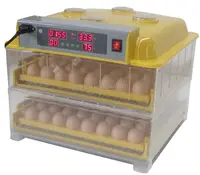
Alibaba.com showcases a diverse range of egg incubators, catering to various hatching capacities and functionalities. From compact units designed for small-scale operations to expansive industrial models capable of incubating up to 125,000 eggs, the platform offers solutions for every level of poultry farming. The selection includes manual egg incubators, which require regular turning of the eggs by hand, and fully automatic systems that manage egg turning, temperature, and humidity control without human intervention.
For those interested in mid-range capacity, there are incubators with a 50-egg capacity, which strike a balance between the hands-on approach of small incubators and the efficiency of larger, commercial-grade machines. These incubators often come with features such as temperature stability, humidity control, and durable construction materials, making them suitable for both amateur enthusiasts and professional hatcheries. The variety extends to specialized incubators designed for different bird species, including chickens, ducks, quails, and even exotic birds like ostriches.
The incubators available on Alibaba.com are not just varied in size but also in the technology they employ. Innovations like intelligent control systems are integrated into some models, enhancing the hatching process's precision and success rate. Solar-powered options also feature in the lineup, offering an eco-friendly and cost-effective solution to hatcheries in sunny regions. With such a comprehensive range, Alibaba.com stands as a one-stop destination for those looking to purchase egg incubators that align with their specific hatching requirements.
Manual Egg Incubators
Manual egg incubators are designed to cater to those who prefer a hands-on approach to poultry incubation. With a capacity to accommodate a varying number of eggs, they are versatile enough to handle various egg sizes, making them suitable for a range of poultry enthusiasts. These incubators feature a liquid in glass thermometer and a flashing temperature indicator to ensure that the eggs are incubated at the correct temperature. The manual turning system allows for precise control over the incubation process. The clear window provides an expansive view, enhancing the user experience by allowing close monitoring of the eggs. The construction of the incubator is designed for ease of cleaning, which is an essential aspect of maintaining a hygienic incubation environment.
Automatic Egg Incubators
Exploring the realm of automatic egg incubators, Alibaba.com presents a variety of models designed to cater to the diverse needs of poultry businesses. Among these, the 50-egg incubators stand out for their balance of capacity and user-friendliness. These incubators are equipped with automated systems to turn the eggs, ensuring even warmth distribution crucial for optimal hatch rates. The integration of advanced thermostatic control systems maintains the necessary temperature and humidity levels, which are vital for the embryonic development of various poultry species.
Materials used in these incubators are chosen for their durability and ease of cleaning, which is essential for maintaining a hygienic hatching environment. The automatic egg incubators available on Alibaba.com also feature transparent walls or windows, allowing for close monitoring of the incubation process without the need to open the incubator, thus minimizing temperature fluctuations. With the capacity to accommodate around 50 eggs, these incubators are suitable for small to medium-sized hatcheries looking to automate their hatching process.
The selection includes incubators that are not only suitable for chicken eggs but also for duck, turkey, quail, and even exotic bird species, providing versatility for various poultry enterprises. The convenience of automatic egg turning and temperature control reduces the manual labor involved, making these incubators a practical choice for both seasoned hatchery operators and those new to the field.
Features to Consider When Choosing an Egg Incubator
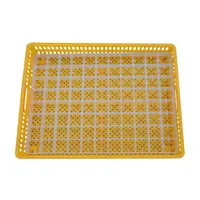
When selecting an egg incubator, it's crucial to understand the features that will best meet your hatching requirements. Key considerations include the ability to monitor and control temperature and humidity, as these are vital for a successful hatch. Incubators with integrated features for temperature and humidity control tend to be more costly, while more basic models are budget-friendly but may require additional equipment.
Temperature regulation is often facilitated by a digital readout or an included thermometer, but humidity control is usually an add-on for higher-end models. For those incubators without a humidity gauge, acquiring a separate hygrometer or wet-bulb thermometer is advisable to ensure optimal conditions.
Another feature to consider is the egg turning mechanism. Some incubators come with an automatic egg turner, while others require manual turning. If you opt for a model without an automatic turner, you'll need to plan for regular, manual egg rotation to mimic natural conditions.
Remember, successful incubation also depends on starting with a clean incubator and using eggs that are free from excessive dirt. Regular cleaning and maintenance of the incubator are essential to prevent contamination and disease, which can affect hatch rates. While incubation can be a process of trial and error, understanding and managing these features can significantly improve your chances of a successful hatch.
Capacity and Scalability
When considering the capacity and scalability of egg incubators, it's essential to assess the volume of eggs that can be incubated at a time. A range of incubators with varying capacities is available, suitable for different levels of poultry production. The 32 eggs incubator is a compact solution, ideal for small-scale operations or hobbyists, while larger models cater to commercial hatcheries looking to maximize their output. The scalability of these incubators is evident in the variety of egg capacities available, ensuring that as your hatchery business grows, there's an incubator that can meet your expanding needs. The design of these incubators also reflects consideration for space, with dimensions provided to ensure they fit within the designated areas in different hatchery setups. This adaptability in capacity and size makes these incubators a versatile choice for businesses looking to scale their operations efficiently.
Temperature and Humidity Control
For optimal hatching outcomes, maintaining the correct temperature and humidity levels in an egg incubator is crucial. The recommended relative humidity for the initial 18 days of incubation is around 60 percent, which should be increased to 65-70 percent during the final three days, the hatching period. Insufficient humidity may lead to excessive evaporation, causing the chicks to adhere to the shell or potentially hatch with deformities.
Adjusting the humidity can be achieved by varying the size of the water pan or by introducing a sponge to augment the evaporative surface. It's essential to ensure the water added is at a temperature similar to that of the incubator to avoid stressing the eggs. In the advanced stages of incubation, condensation on the glass can indicate adequate moisture, although this can also be influenced by the room's temperature.
A wet-bulb thermometer can be a valuable tool for monitoring humidity levels. This device works on the principle of evaporative cooling; a lower wet-bulb reading compared to the dry-bulb indicates lower humidity. To construct a simple wet-bulb thermometer, attach a cotton wick to the end of a thermometer, with the wick's tail immersed in water, allowing the cotton to absorb and evaporate water, thus cooling the thermometer.
Monitoring the size of the air cells within the eggs through candling can also provide insights into the humidity levels. Proper ventilation is equally important to ensure a sufficient exchange of air, which is vital for the developing embryos. An incubator's ventilation system should allow for an adequate supply of oxygen while preventing the risk of suffocation in airtight environments.
Material and Durability
When considering the construction and durability of egg incubators, two primary materials emerge: polystyrene and plywood. Polystyrene, commonly used for smaller, more affordable incubators, offers excellent insulation, which is crucial for maintaining consistent temperature. However, it's less durable and more susceptible to damage. On the other hand, plywood incubators, particularly those made from exterior or marine-grade plywood, provide a sturdier alternative. These are designed to hold a larger capacity, which may be more suitable for those looking to incubate a significant number of eggs. The durability of plywood makes it a more permanent solution, though it comes with a higher initial cost. Both types of incubators typically incorporate glass elements, either for viewing windows or as part of the heating mechanism, which is a glass-covered heating element. The choice between polystyrene and plywood will depend on the user's needs for capacity, longevity, and budget, with plywood being the preferable option for those prioritizing durability.
The Top 50-Egg Incubators on Alibaba.com
Exploring the diverse range of 50-egg incubators on Alibaba.com reveals various options tailored for different poultry farming needs. Among the selection, the solar-powered incubators stand out for their energy efficiency, suitable for locations with limited access to electricity. These incubators come equipped with a battery, ensuring a constant power supply. Another notable type is the fully automatic machines, which simplify the hatching process with features like automatic water addition and egg turning, reducing the manual labor involved. For those in veterinary practices or pet breeding, specialized vet incubators designed for smaller animals offer precise temperature and humidity controls, vital for sensitive incubation requirements.
In terms of capacity and scalability, options range from small-scale incubators, ideal for domestic use or educational purposes, to larger, industrial models capable of accommodating up to 440 eggs, catering to commercial hatcheries. The incubators are designed with adjustable egg trays to accommodate different egg sizes, from chicken to duck and goose eggs, providing versatility. The construction materials of these incubators prioritize durability, with some models featuring robust plastic builds that promise longevity and ease of cleaning.
For technologically advanced solutions, some 50-egg incubators incorporate artificial intelligence to monitor and adjust the incubation environment, ensuring a higher hatching success rate. These smart incubators often come with drying modes and other innovative features that enhance the hatching process. With a focus on user-friendly interfaces, many incubators offer digital controls for precise management of the incubation conditions, which is crucial for both novice and experienced breeders aiming for optimal hatch rates.
Advantages of Sourcing Egg Incubators
Sourcing egg incubators presents a variety of advantages for hatchery businesses. The platform offers a diverse range of incubators, including those with a capacity of 50 eggs, catering to different business sizes and needs. The selection includes both manual and automatic incubators, ensuring that purchasers can find the right balance of technology and hands-on control for their operations. The incubators available are designed with features that prioritize the health and viability of the eggs, such as stable temperature and humidity control systems, which are crucial for successful hatching.
Materials used in the construction of these incubators, like durable plastics and metals, contribute to their longevity, making them a cost-effective choice in the long term. Additionally, the presence of features like automatic egg turners and built-in fans in certain models can enhance the hatching process, leading to higher hatch rates. The variety of incubators allows for scalability, supporting businesses as they grow. By offering a range of products that cater to different aspects of the incubation process, the platform stands as a comprehensive source for those looking to optimize their hatchery operations.
Conclusion
In conclusion, the journey from egg to chick is a delicate process that demands precision, care, and the right tools. The top 50-egg incubators showcased offer a spectrum of features tailored to enhance this journey, from manual to fully automatic systems, catering to the diverse needs of hatchery businesses. With considerations like temperature and humidity control, capacity, scalability, and material durability at the forefront, these incubators are designed to optimize hatch rates and ensure the growth of your poultry enterprise. The platform stands as a vital resource, providing access to a range of incubators that promise to meet the evolving demands of both small-scale operations and expansive commercial hatcheries. As we've seen, the right incubator can make all the difference, paving the way for a thriving, productive hatchery business.
